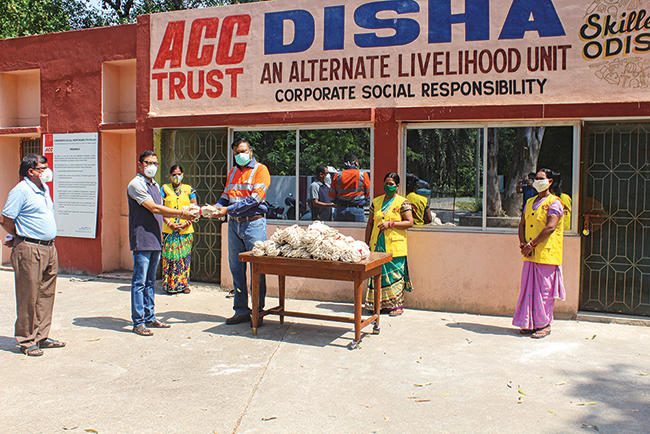
PILLAR 4
People and community
ACC identifies itself as a caring organisation and takes pride in fostering the growth of its employees and taking care of the development of its communities. Our leadership supports and promotes a culture that is fair, transparent and inclusive.
People strategy

Employee well-being
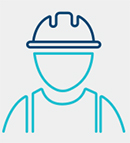
Health and safety

Learning and development

Diversity and inclusion
Leading with empathy
COVID-19 triggered a humanitarian crisis globally. At ACC, we mobilised resources to support our employees and their families, third party workers and the communities around our plants by arranging for COVID-19 testing, generating awareness through information and education, and providing medical support wherever required. Further, our policies including work-from-home, financial and medical assistance supported our people during the crisis.
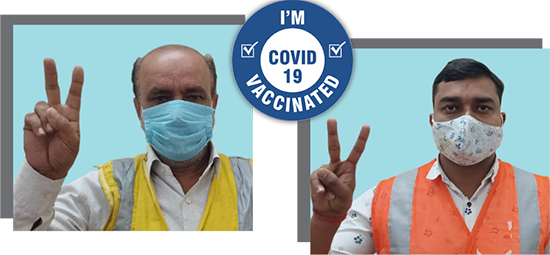
Vaccinated truck drivers engaged in Tikaria plant
Our people initiatives focused on ensuring the well-being of our people. The Business Resilience Team (BRT) was constituted to direct, guide and monitor employee well-being, health and safety within the organisation. A in-house COVID Crisis Control Room along with third party health service providers guided employees in navigating the pandemic. Our unique counselling initiative – Sparsh provided support for the emotional well-being of our employees and their immediate family members. Our vaccination programme reached all employees and their families, third party workers and truck drivers. We ensured that all employees in our ecosystem were fully vaccinated by early August 2021. Further, our COVID support policies helped those impacted by the virus.
The ACC-Ambuja Leadership Academy (AALA) used inputs from the BRT to start some of its first outreach programmes and to establish a meaningful connect with the employees.
These programmes involved 200 in-house experts and the sessions were designed keeping employee needs in mind. Twelve webinars covering subjects such as 'COVID and How to Manage It' and 'Mental Well-being and Resilience' were organised. About 2,195 employees participated in these programmes.
| Employee strength | New hires | Employee attrition |
|---|
| Age Group | Male | Female | Male | Female | Male | Female |
|---|---|---|---|---|---|---|
| <30 | 656 | 126 | 255 | 84 | 153 | 29 |
| 30-50 | 2,270 | 109 | 230 | 8 | 292 | 13 |
| >50 | 474 | 12 | 12 | 0 | 22 | 1 |
5-year attrition trend*
(%)
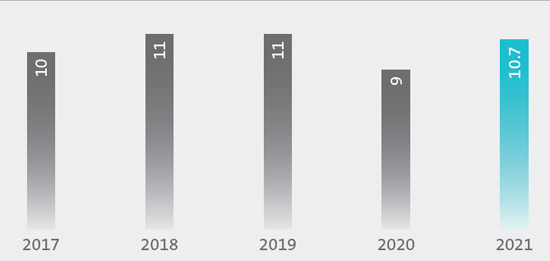
*Attrition trend is for Cement business
Collective bargaining and trade union relationships
Our factory workers or Shop Floor Associates (SFA) constitute ~45% of our direct employees. They are an indispensable part of our workforce and we engage with them as trusted business partners. We maintain cordial and harmonious relationships with our unions through regular communication and open, two-way dialogue and have their tacit approval in all critical business decisions.
Our COVID policies provide ex-gratia support for family of deceased SFA, as well as third party workmen and special leave for those infected by the virus.
DIVERSITY AND INCLUSION
ACC is an equal opportunity employer and ensures that our people are treated with respect, dignity and fairness. We are committed to:
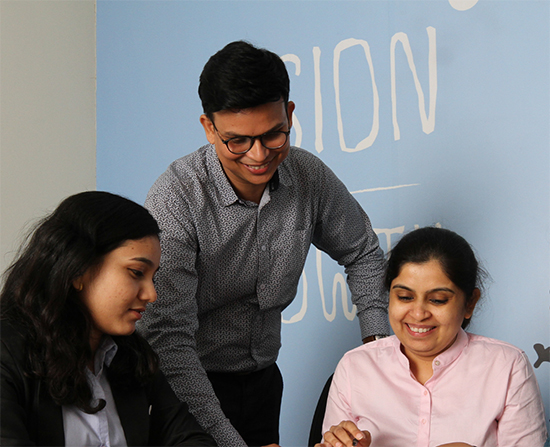
- Creating and sustaining a diverse and inclusive workplace with zero tolerance for any form of discrimination/harassment
- Ensuring that all members have equal access to information and opportunity
- Accepting and appreciating diverse points of view/new ideas and opinions to promote creativity, innovation and high performance
Our four strategic levers for promoting diversity and inclusion are attracting diverse talent, promoting education and awareness, engagement and development and building ecosystems at workplace.
Building diversity at the workplace is a journey. We are pleased to share, that over the last few years we have achieved a gender diversity of 7% amongst the management staff.
To promote gender diversity, we also run mentorship programmes and initiatives that expose women to leadership roles, and enhance their skills. Several sensitisation workshops have also been conducted to promote inclusion at the workplace.
We employ people with disabilities. At ACC, we recognise that diversity has many dimensions and remain committed to providing equal opportunities for employment.
Gender Diversity by Management Category
| Age Group | Male | Female | Gender diversity (male : female) |
|---|---|---|---|
| Junior Management | 2,127 | 185 | 92:8 |
| Middle Management | 1,063 | 53 | 95:5 |
| Senior & Top Management | 210 | 9 | 96:4 |
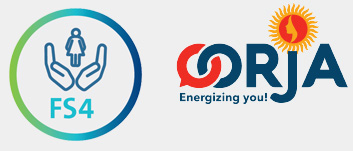
Women's support network
Oorja is an all-India women's network that aims to motivate women at the workplace through peer support and collaboration. Oorja enables women to interact with their senior women colleagues within the organisation. The programme fulfils our objective of providing our women employees a nurturing and supportive environment and achieving our vision of becoming a great place to work for women employees.
Launch event
Oorja was launched virtually and the event was attended by over 200 women employees from different locations in India.
Key objectives
- To share ideas, give suggestions and facilitate the process of building a women-friendly organisation
- To co-create an organisation that becomes a ‘great place to work’ for all our women employees
- To ensure we become one of the most admired organisations in India on attributes like gender diversity practices, inclusivity and employee engagement
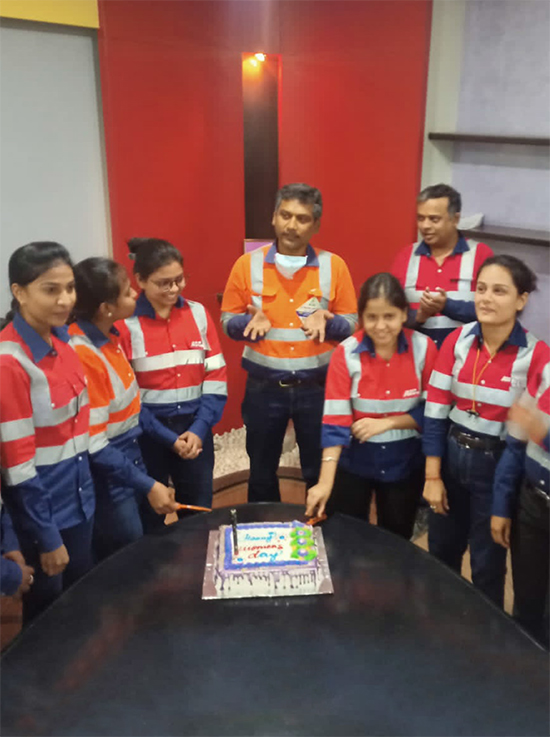
LEARNING AND DEVELOPMENT TO ACHIEVE COMMON GOALS
Learning & Development is an integral part of our people strategy and essential to developing employee potential. We continue to encourage employees across the organisation to learn through the multiple options available to them.
During the lockdown, a simple and intuitive learning model was used which proved to be an effective employee engagement tool. By leveraginge our digital ecosystem of learning and development, we support our employees on their developmental journey. We offer the following learning and development formats:
- Large instructor-led webinars – master classes mostly open to all levels of employees
- Smaller virtual instructor-led sessions and programmes tailored to the needs of specific teams
- Programmes that support key organisational development initiatives such as successor development, creating a culture of safety, etc.
E-learning modules
AALA introduced Super Assisted Intelligent Learning (SAIL), a learning experience platform (LXP) in 2019, which gives insights into individual-driven learning. Multimedia learning tools such as videos complemented trainings conducted through the three formats mentioned above. Several programmes including coaching for sales leaders and workshops to build synergy among teams have been conducted on this platform.
Leadership programmes
During the year, Succession Development Programme was launched for the Manufacturing and Sales teams to strengthen succession planning at the mid-management level. Also, the Emerging Career Leader Programme was launched to build a pipeline of future leaders by providing a six-month virtual training for select junior employees.
The Holcim Business School for Emerging Leaders is our group’s global programme for mid- and senior-level managers to prepare them for next level roles. Through a modular, four-month programme offered annually, this programme focuses on development of leadership, strategy and business acumen. During COVID, the programme was offered virtually.
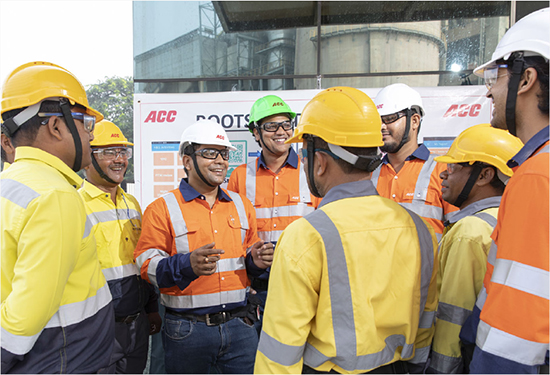
Area-wise learning
(% of time spent)
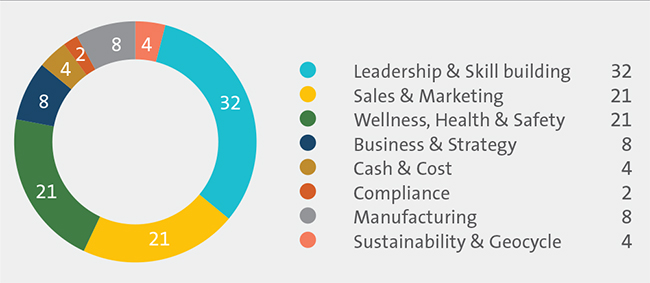
4,033
Total unique employees participated in the training programmes
21,466
Overall employees attended more than one programme
396
Total no. of training programmes conducted
96
Modules created/uploaded on SAIL
82,713
Total learning hours
157
Total Internal/External faculty
64
Total In-house
courses/e-modules created
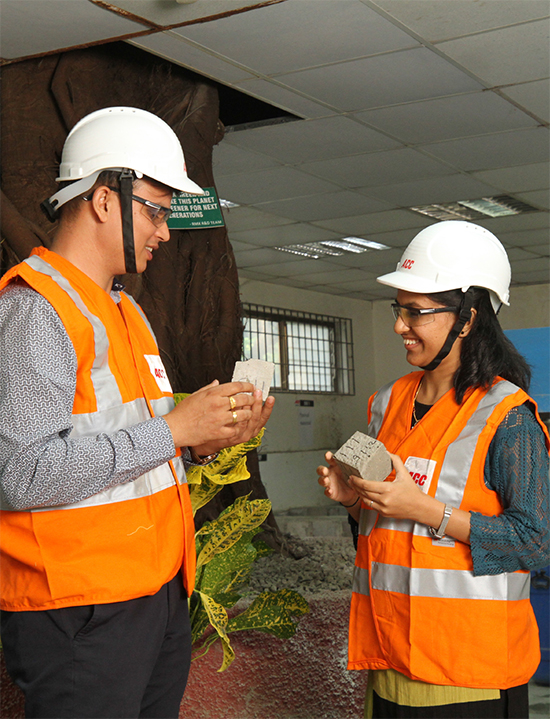
Employee engagement
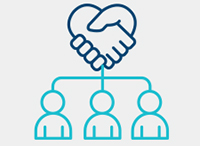
Webinars on emotional wellness for employees and their family
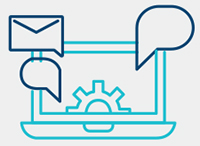
Engagement by leadership team
through regular
e-mails/newsletters

Engagement through MD & CEO programmes
Pratibha ke Rang, ACC ke Sang
The ACC Parivaar countered the COVID-19 crisis with resilience. Last year, we organised 'Pratibha Ke Rang, ACC Ke Sang', an event which encouraged ACC employees and their family members to showcase their talent. The event not only brought employees together, but also unearthed diverse creative talents of our employees and their close ones.
This unique initiative was launched on our digital platform and received wide coverage, participation and great viewership.
Engagement programmes
We have several initiatives in place to enhance employee engagement.
'Baat Cheet' is our quarterly town hall wherein the MD & CEO, along with the leadership team engages with employees to share the Company’s quarterly performance and priorities.
'Open House Conversations' are small group-based location or function-wise interactions with MD & CEO and leadership team on wide range of topics to promote transparent exchange of views.
Our 'Write to MD & CEO' app encourages all employees to connect directly with the MD & CEO and present their ideas and suggestions, share team and individual achievements as well as express their concerns. This app brings in more transparency and boosts morale and confidence levels of our people.
#Coolestworkplace
ACC has been ranked amongst top 25 coolest workplaces in India by Business Today
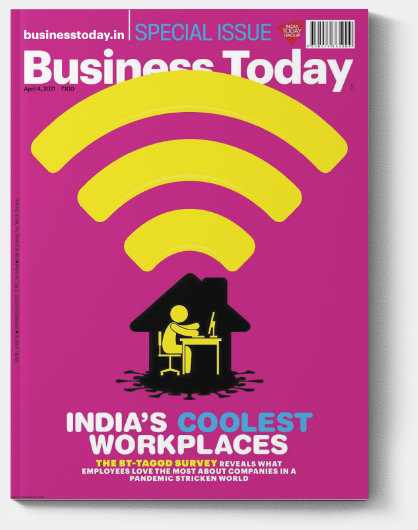
ACC scored highly on
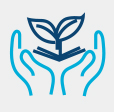
Growth and Learning opportunities

Hygiene and safety at work

Job security and stability
HUMAN RIGHTS
Respect for human rights is fundamental to the way we conduct our business and form the core of our workforce policies. ACC is committed to upholding human and labour rights in our operations, business activities and relationships.
Our approach to managing human rights is aligned with the United Nations Guiding Principles on Business and Human Rights to prevent, address and remediate infringements on human rights. The CEO of Holcim – Jan Jenisch is championing our commitment to human rights. He is also a part of World Business Council for Sustainable Development (WBCSD) CEO Guide on Human Rights 2nd edition, which further underlines our responsibility. The WBCSD is a CEO-led organisation of over 200 international companies driving sustainable development.
Our human rights approach

Policy commitment
- Human rights policy
- Embedded in related policies
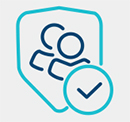
Identification of risks and impact
- Conduct self-assessment across plants
- Regular dialogue with community and supply chain
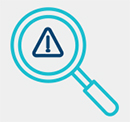
Addressing risks and impact
- Integrate findings
- Prioritise issues with action plans

Monitoring and communication
- Monitor action plan implementation
- Track effectiveness of response
- Communicate on performance
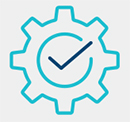
Grievance and remedy
- Grievance mechanisms
Stakeholder mapping
Internal
- Plant Leadership team
- Management Staff
- Shop Floor Associates
- Union Leaders
- Third Party Workmen
- Drivers
- Packers and Loaders
- Colony Residents
External
- Community Representatives
- NGOs
- Contractors
- Transporters
- Government Officials
Human rights assessments
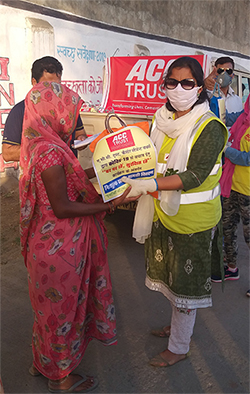
We have conducted human rights impact assessment at 11 of our manufacturing plants and developed action plans. As part of these assessments, human rights awareness sessions were conducted together with de-briefing sessions with leadership teams. We are enthused by the response to these consultations and our actions to improve H&S and community outreach. We plan to conduct 4 such assessments in 2022.
11 plants
assessed as per Human Rights standards
1,260
people consulted
ENSURING EMPLOYEE HEALTH AND SAFETY AT OUR PLANTS
Health & Safety (H&S) is a core value for ACC. Our senior management play an active role in promoting safety culture across the organisation to achieve our goal of zero-harm. Executive Committee KPIs are linked to H&S Performance, in order to drive the safety culture.
Focus areas for 2021

Zero fatality and LTIFR improvement

Rewards and recognition
Health, Safety and Environment Improvement Plan (HSEIP)
The HSEIP plan reinforces leadership role in Health & Safety and has led to implementation of specific measures to improve our H&S performance. These actions include:
- Audit of H&S management systems at all cement and ready-mix concrete plants to provide assurance on their implementation and effectiveness
- Boots on Ground initiative to improve risk management and shop floor engagement
- Health & Safety Culture Perception survey at manufacturing units, project sites and RMX units
- Certification programmes for LOTOTO, Rail Safety, and Field Level Risk Assessment.
- Addressal of critical risks associated with coal shop, conventional fuels, mining operation, hot meal handling, and structural stability in a phased manner
COVID-19 response
Our Business Resilience Team (BRT) comprising members of the senior leadership team regularly reviews the evolving COVID situation globally and within India. Accordingly, it issues relevant guidelines to ensure employee safety and business continuity.
As part of our response to the pandemic, we undertook regular screening of staff across plants and offices, sanitisation of workplaces, awareness sessions and vaccination of our employees and contractors. Post reopening, all employees and contractors entering plant premises have had to undergo Rapid Antigen Test every 15 days and RT PCR test on return from leave. To manage health emergency situations, we have entered into tie-up with hospitals and fully-equipped health centres. All visits by sales and marketing employees are monitored. We constantly stress on maintaining COVID-appropriate behaviour such as wearing of masks and hand sanitisation.
Safety performance
| KPIs | 2018 | 2019 | 2020 | 2021 |
|---|---|---|---|---|
| Onsite Fatality | 0 | 4 | 0 | 0 |
| LTIFR (Employees & Contractors Onsite) |
0.45 | 0.34 | 0.31 | 0.25 |
| Million Man-hours | 46.63 | 43.71 | 35.20 | 52.60 |
| Lost Time Injury (LTI) | 21 | 15 | 11 | 13 |
Safety orientation
We conduct structured H&S induction programme for new employees in manufacturing, sales and logistics functions to inform them about H&S rules and policies and inculcate safe behaviour. Such centralised programmes are conducted at corporate level by H&S and HR teams. In addition, each plant conducts its own H&S induction for new employees, visitors and contractors. We also conduct an induction programme for senior leadership through Corporate H&S Team.
Monitoring safety performance
We conduct H&S audit programme to monitor compliance with safety rules and standards.
This includes Intra Plant audit within the Company, Cross OpCo Audit - cross company audit and Group Audit conducted by the Holcim group. Safe Operating Procedures related to Health and Safety are implemented across all plants and its implementation is monitored and verified on monthly basis through respective plant H&S scorecard.
Safe practices are monitored through different tools such as Boots on Ground (BoG), Visible Personnel Commitment (VPC) and hazard reporting. The Critical Control Management programme was launched to address the eight critical elements called Priority Unwanted Events (PUE) in our operation. This has led to 35 critical controls which are monitored through critical VPCs and quarterly field verification for effective implementation.
Recognitions for safety
- 3rd ICC National Occupational Health & Safety award 2021 to ACC Thondebhavi (Platinum certificate) and ACC Jamul (Gold certificate
- Effective Safety Culture Award by Greentech Foundation to ACC Thondebhavi
- Ametha Project awarded with the ‘Five Star Safety Audit Certification’ applied by Larsen & Toubro
Health and safety perception survey
Health and Safety Cultural Survey 2021 was conducted across all manufacturing units, RMX plants and project sites. A total 7,295 respondents took part in this survey, an increase of 16% from 2020. The survey addressed eight major elements including subjective risk assessment, rule enforcement, addressing problems and hazards, work planning, supervisory oversight, resource management, operational process, and values and commitment. The analysis of survey response revealed shortcomings in supervisory oversight element. The outcomes of the survey will be used to develop Health, Safety & Environment Improvement Plan (HSEIP) 2022.
Trend (2018-2021): Health and Safety Perception Index
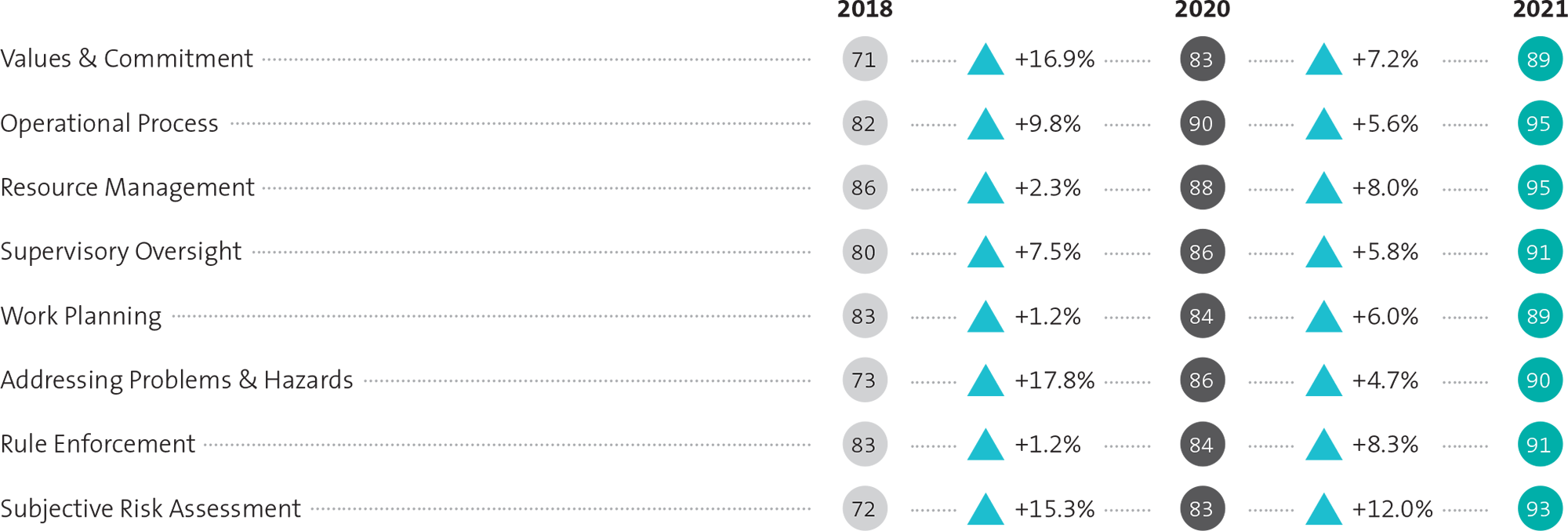
15 cement plants + 6 RMX regions
(Analysis of mean scores of the 8 elements)
Leading and lagging indicators
To improve our safety performance, we monitor key leading and lagging indicators. BoG, VPC, hazard identification and Near Misses are the key leading indicators monitored by us. All functional HODs and Senior Leaders are given monthly targets on leading indicators. On a monthly basis, the Senior Leaders' BoG, VPC and hazard reporting are monitored and timely guidance on improving the leading indicators are conveyed through monthly cluster meetings. Critical Job reviews, VPC and Hazard Reporting, Annual Audit Plan and country level meetings contributes in improving the Leading and Lagging indicators performance.
123+ Million
safe man-hours spent without any major accident
19%
reduction in LTIFR from 2020
13+ Million
safe man-hours spent at our project sites
38%
reduction in TIFR from 2020
Rewards and recognition policy 2021
To promote safety culture, we have instituted several awards to recognise individual and team efforts towards safe work environment. The individual awards include Safety Person of the Month and spot rewards for good work. Team rewards include ‘War on Waste’ rolling trophy and the monthly Best Zone award. In addition, reward and recognition ceremonies are organised at plant level.
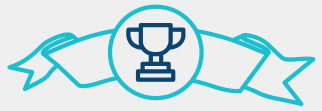
Rewards and recognition
-
Jamul
Best H&S Performer (IP)
-
Thondebhavi
Best H&S Performer (GU)
-
Sindri
Best H&S Performer (Projects)
-
East Region
Best Region in Logistics Safety
-
Jay Mukhopadhyay
Best H&S Professional
-
Ashok Kumar Verma and Yogesh Gurav
Best Logistics Safety Professional
Mission focus 2021
Mission Focus 2021 is a special initiative to monitor safety effectiveness through virtual visits to incident prone areas. Under this initiative, virtual visits to mines, poking/jam cleaning at cyclone and kiln inlet were conducted and gap closure action plan developed. All these actions are reviewed in weekly and monthly H&S review meetings.
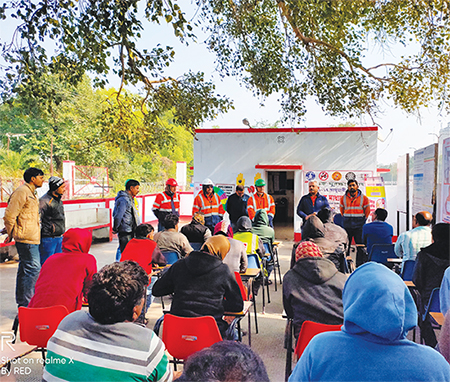
Behaviour based safety programme
The programme started during the year imparts training to all employees on VPC and complements reward and recognition programme.
Maintaining employee health
As part of our holistic H&S approach, we undertake several initiatives to monitor, treat and improve health of our people. The health of all employees is reviewed periodically through medical examinations. Health risk factors are monitored bi-monthly and appropriate guidance and treatment is provided. We also organise lifestyle management programme and health awareness sessions for our employees and their families.
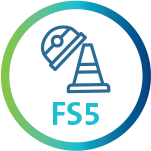
Consistently improving road safety performance
ROBUST ROAD SAFETY PERFORMANCE
Road Safety is a serious challenge in India where 430 lives are lost each day. For ACC to achieve its Ambition “0”, the safety of our drivers and other roadusers during material transportation across the country covering over 500 Million kms becomes paramount. Over the last 5 years, we have invested in technology, resources, training and systems to achieve significant improvement in our road safety performance.
Focus areas for 2021

Skill development

Driving behaviour management
Enablers

Stakeholder engagement
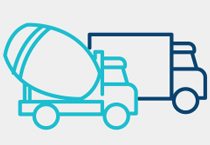
Vehicle standards
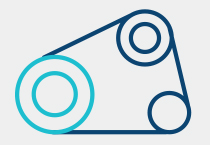
Investing in technology
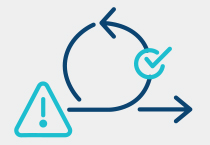
Journey Risk Management
5-YEAR PERFORMANCE IMPROVEMENT JOURNEY
Our journey began in 2016-17, when we started evaluating and monitoring our road safety performance. This was triggered by the loss of lives in road accidents in 2016, which prompted us to strengthen reporting of each offsite incident. We developed an India Road Safety Plan and designed a 5-year strategy to achieve our Ambition “0” on roads.
Since then, we have established a strong road safety management system. The key performance indicators are %safe Kms, % Kms with in-Vehicle Monitoring System (iVMS), % Kms by approved drivers, injury reduction, critical and fatal incident elimination.
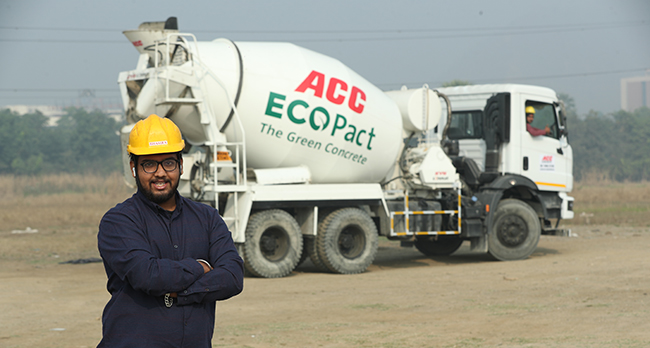
12,000+
Drivers vaccinated in 2021
5,000+
Trained as per Holcim certified training and in-cab assessment programme in 2021
Reskilling drivers
We lay emphasis on skilling of our drivers and their driving behaviour management through stakeholder engagement, progressive strengthening of vehicle standards and investing in journey risk management.
Continuous investment in hardware and software technology adoption and upgradation has been key to our strategy. We implemented iVMS programme and have installed vernacular language enabled voice-box in all vehicles to give real-time alerts to drivers which helps improve driving behaviour on the go. We presently have over 10,000 iVMS and voice boxes installed.
Skill development
Our experience shows that skilling and behaviour management through training, coaching and counselling are key to managing road safety. We established Driver Management Centres (DMCs) for training and created App based e-Passport to capture driver and vehicle details including trainings, licence number, vehicle fitness, pre-trip inspection and more. This e-passport is checked every time the vehicle enters the plant to ensure safe delivery of consignment.
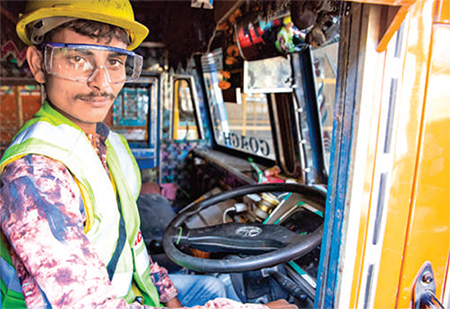
DMCs are established across all our 15 plants with over 50 counsellors deployed. A core function of the DMC is to monitor daily performance with respect to % safe kms reflected in the daily Transport Analytics Center (TAC) dashboard and make on ground intervention in coaching and training drivers to influence change. Holcim certified Master Trainers are deployed in each DMC for training and the in-cab assessment help us in skilling drivers to handle the dynamic road risk situation and avoid any loss to self or other road users.
What are Safe Kms
Safe Kms reflect the number of Kms completed without an error related to driving skills like braking, acceleration and speeding or a violation resulting from fatigue driving, continuous driving, longs hours of driving or lack of rest hours.
Onboarding new drivers
Every year, we induct more that 1,500 new drivers per month who go through a robust induction process with Defensive Driving Induction at the DMC. The driver has to qualify an in-cab assessment comprising of four hour classroom session followed by two hour on-the-road assessment within three months of joining. Every two years, there is a mandatory refresher course for in-cab assessment.
Safety performance in 2021
Strong safety performance was delivered during the year with the higher safe Kms, which increased from 72% in 2020 to 80% in 2021, and up from 14% in 2016. We have also observed a significant decline in critical incidents and recorded first ever zero recordable fatality year in 2021. The improvement reflects our continued commitment to road safety.
Zero
Recordable fatality in 2021
82%
Reduction in critical incidents in 2021 over 2016
80%
Safe Km in 2021
Logistic Incident - Critical
(%)
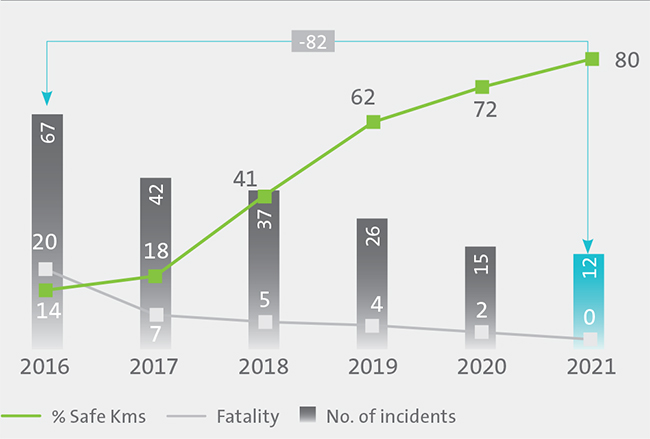
Community development
Our CSR activities play a vital role in the socio-economic development of communities in the vicinity of our manufacturing plants. We have constituted Community Advisory Panel (CAP) across our locations to drive community development projects in an effective and transparent manner.
ACC develops the annual CSR plans and defines the project goals, outcomes and impacts. The ACC Trust and its partner organisations implement all CSR interventions. The effectiveness of the programmes is assessed through regular field visits, monthly physical and financial MIS, and third-party impact assessment studies.
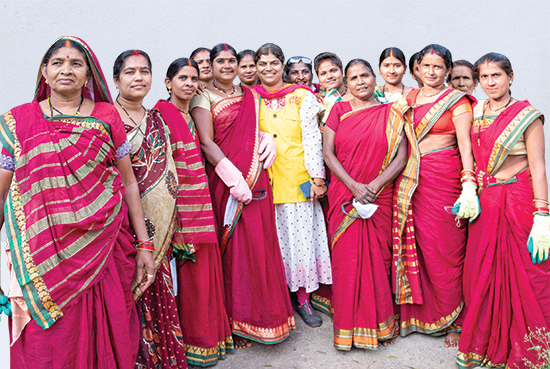
BOARD OVERSIGHT ON CSR
The CSR and Sustainability Committee recommends its annual plan to the Board of Directors for providing strategic guidance. The Board approves the annual action plan, which is then translated into action on ground. The CSR & Sustainability Committee monitors the progress of this action plan on a quarterly basis and also intervenes with corrective actions for improvement.
SOCIAL IMPACT AREAS
The major focus areas of community development programmes are aligned with the sustainability goals of the United Nations as well as section 135 (Schedule VII) of the Companies Act, 2013. Three main focus areas are:
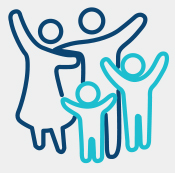
Sustainable Livelihoods

Quality of Education
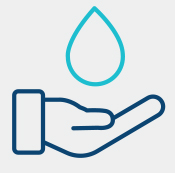
WASH (Water, Sanitation,
Health and Hygiene
CSR ROADMAP 2030
Going forward, ACC has realigned its CSR focus areas with business sustainability strategy 2030, sustainable development and ESG goals, and section 135 (schedule VII) of the Companies Act, 2013. The new focus areas are Water Governance & Management, Sustainable Livelihood and Social Inclusion. We have started working with specialised and credible partner organisations, government bodies and other private players for bringing convergence, collaborations to achieve scale and impact.
CSR expenditure
(` Crores)
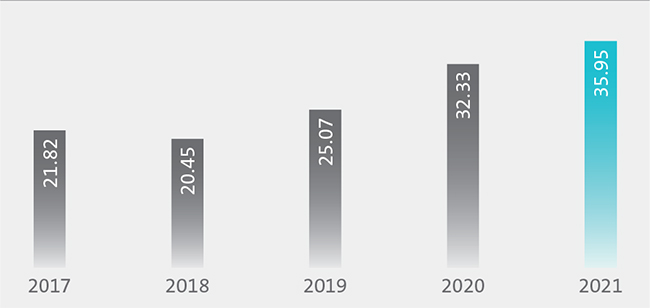
Our key achievements
Sustainable livelihood
44,000+
Beneficiaries connected through women federations, farmer producing organisations and employable skill training
Quality education
25,000+
Beneficiaries impacted through digital literacy, online education, quality education, teacher training and scholarship for higher education
Wash (water, sanitation, health & hygiene)
5,00,000+
Beneficiaries positively impacted through malnutrition eradication, safe drinking water, sanitation and health and hygiene initiative

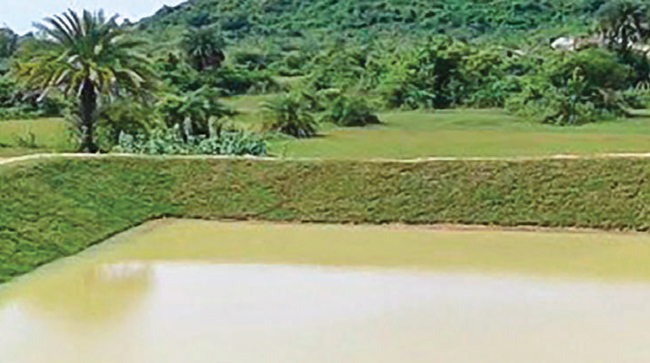
Community development efforts
COLLABORATIVE WATER MANAGEMENT IN COMMUNITIES
Working with communities, ACC Trust is helping enhance water availability in nine villages across eight gram panchayats in Maharashtra. A community interaction-intervention model is used to further the objective of ensuring adequate water supply for drinking and irrigation purposes, which is a major challenge today. In the early phases of the project, a community mobilisation-focused group was formed, along with Water User Association (WUA) committees, to identify and understand the needs and priorities of farmers. The community was expected to contribute 20% of the costs of the restoration work.
The following activities were undertaken for maintaining water supply:
- Construction of cement nala bund and repair of existing cement nala bunds
- Promotion and installation of drip / micro irrigation to control the flood irrigation.
- Farm pond and pond de-siltation
With the help of these water conservation structures and activities, the water availability in the area has increased significantly. Now water is available upto 3 months after the monsoons, enabling 671 hectares of land to be cultivated.

ACC Vidyasaarathi Scholarship for students
Under this programme, we provided scholarships worth ` 1 Crore to over 2,400 students for pursuing under graduate programmes in 2021-22. The programme supports underprivileged students residing near the ACC plant locations who cannot afford quality education. These scholarships encourage them to overcome their financial constraints and pursue their chosen career path.
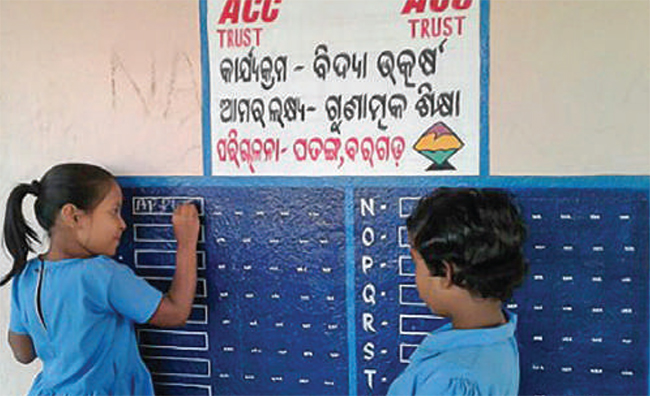
Our COVID response
Distribution of masks and emergency ration kits
3,53,344 Masks stitched and
3,38,457 Distributed
19,717 Distressed community members supported through dry ration and cooked food packets
Awareness building
1,06,025 People reached through mass awareness and telecounselling (mental health awareness) sessions
1,67,968 People reached through disinfection drives
Providing community health infrastructure support
420 Jumbo oxygen cylinders provided to government hospitals & COVID-care centres
6 Dedicated ambulances for COVID support
16 COVID-care centres provided with essential support items
8 Oxygen plants installed at Tikaria, Thondebhavi and Chanda, Bargarh, Wadi, Gagal, Lakheri and Ametha Actively partnering with the government for pushing vaccination drives

Our flagship skill development programme - DISHA
Development Initiative on Skills for Holistic Development (DISHA) is a programme that aims to provide livelihoods to unemployed youth around plant locations. Under this programme, training, skilling and placement assistance are provided and self-employment initiatives are encouraged. The award recognises DISHA’s efforts to develop marketoriented skills in these youth. DISHA has 17 centres and takes an innovative approach to solving the problem of unemployment.
17,915
youths have been trained through these centres so far

DISHA wins award at 19th FICCI CSR Awards 2021
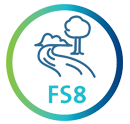
Lift irrigation project on Rajasthan’s Mej river
ACC Lakheri Cement Works conducted a need assessment study at Kankara Dunger village in Rajasthan, which faced water scarcity during dry season. Farmers from the village were unable to irrigate their fields in summer. ACC Trust enlisted technical partners to implement lift irrigation using a 3.6 km long pipeline to connect the Mej river in Rajasthan’s Bundi district with the Kankra Dunger village. Regular capacity building training programmes for farmers were organised. ACC also initiated a water user group called “Balaji Jal Utthan Samiti, Kankara”, to whom the project has been handed over to operate and maintain the entire lift irrigation system.
1,233
Beneficiaries in the village
3.6 km
Pipeline
1,200 Bigha
Land irrigated
